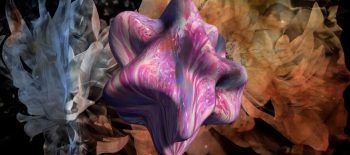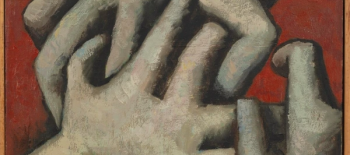For many years, the writer Wisława SZYMBORSKA created collages in postcard form which she sent to her friends to mark a variety of occasions. The exhibition being held in Brussels is showcasing a selection of 25 collages which reflect the poet’s imagination and amount to a rare opportunity to show the winner of the 1996 Nobel Prize for Literature in a new light. Just like her poetry, her collages are characterised by a mastery of cutting edge art and a surreal sense of humour.
The exhibition of collages by Wisława SZYMBORSKA was shown for the first time in 2013 on the first anniversary of the poet’s death. Since then, it has travelled in Poland and abroad, notably visiting Germany, Italy, Spain, Hungary, Bulgaria, China and Kazakhstan.
As part of the exhibition, the conference, entitled ‘Semi-literary collages: Wisława Szymborska and Michał Rusinek’, will be held on Thursday 29 November at the Université Libre de Bruxelles (ULB) with, in attendance, the author, critic and literary translator Michał RUSINEK, former secreatry of Wisława Szymborska, and Dorota WALCZAK-DELANOIS, a teacher at the ULB.
PRACTICAL INFORMATION
EXHIBITION
>>> Katarzyna Napiórkowska Gallery (Monts des Arts 8, 1000 Brussels) – see map
>>> Friday 30 November > Tuesday 11 December 2018 – 12:00 > 18:00 (Tue > Sat)
>>> Opening: Friday 30 November 2018 – 19:00
>>> free of charge
Exposition organised under the patronage of His Excellency Artur Orzechowski, Ambassador of the Republic of Poland to the Kingdom of Belgium
CONFERENCE
>>> Maison des Arts of the ULB (Avenue Jeanne 56, 1050 Brussels) – see map
>>> Thursday 29 November 2018 – 19:00
>>> free of charge
Conference given in Polish with consecutive interpretation into French
WISŁAWA SZYMBORSKA made few waves in the second half of the XXth century, but then she attracted the attention of the world’s press and a wider public, when she received the Nobel Prize for Literature in 1996.
Throughout a career spanning more than fifty years marked by the publication of fourteen collections of poetry in Poland (between 1952 and 2009), Szymborska provided an example of a creative approach which was perfectly independent whilst always managing to go to the heart of the preoccupations of her contemporaries, without this spirit of staying true to herself ever stopping her from moving on or growing. The collection widely considered to be her masterpiece, Wszelki wypadek (Couldn’t Have, 1972), led to Szymborska being heralded a literary star in her country. Each of the following collections, which also revealed her taste for the happy medium, her horror of excess and distrust of lofty artistic ambitions, met with the same response.
Translated into numerous languages, her poetry easily crossed the borders of her country thanks to her clear language and the universality of the themes which she addresses.
Wisława SZYMBORSKA was born in 1923 in Bnin (today a part of Kórnik), near Poznan, in Poland. In 1931, her family moved to Krakow, Poland’s intellectual capital, to which she remained faithful her whole life, making the university (where she studied literature and sociology), and the cafes and bookshops, which the city has in abundance, part of own her personal landscape. Szymborska belonged to the generation of sacrifice who spent the end of their adolescence in the shadow cast by Hitler and their early adulthood under the jackboot of their Soviet big brother. She claimed that those years marked her sensibility and intellect, so it was as a woman who was profoundly affected by the tragedy of the Second World War that she published her first poems, from 1945, in the journals and reviews for which she had begun to work. The long-time editor of the weekly review “Życie Literackie” (where Zbigniew HERBERT also made his debut), Szymborska also worked as a translator. She contributed towards raising the awareness and appreciation of Baroque French poetry in her country, notably Les Tragiques by Agrippa d’Aubigné.
Szymborska died in Krakow on 1 February 2012.
Links
Université Libre de Bruxelles: http://www.ulb.ac.be
Galerie Katarzyna Napiórkowska: https://www.napiorkowska.pl/index.php/language/fr/acceuil/





